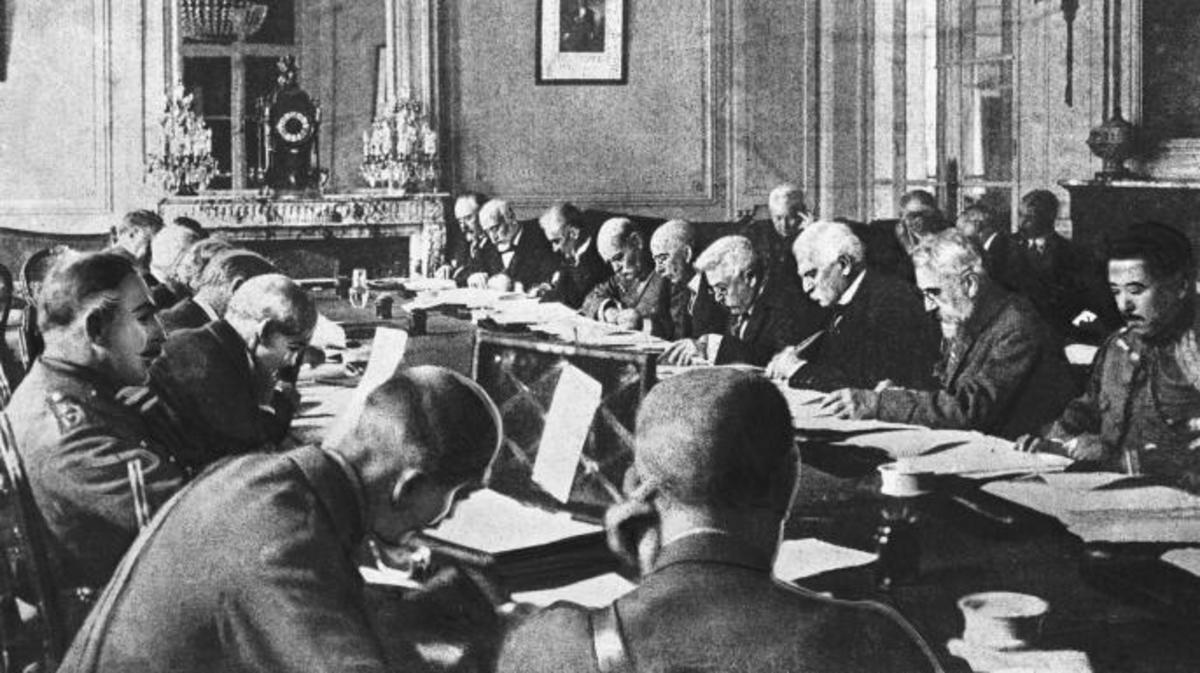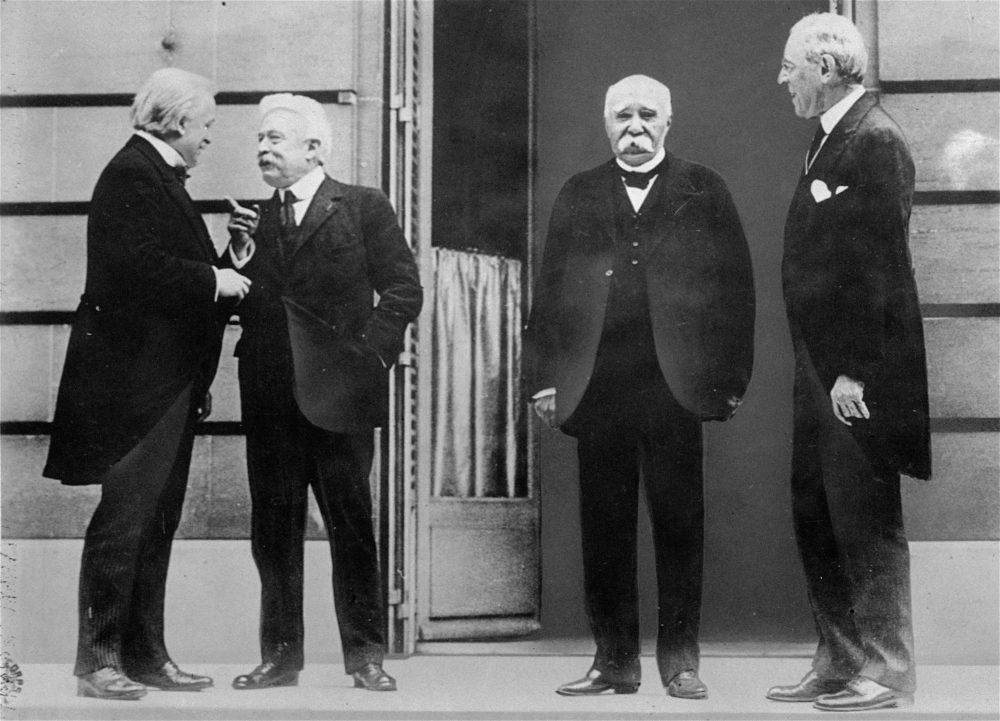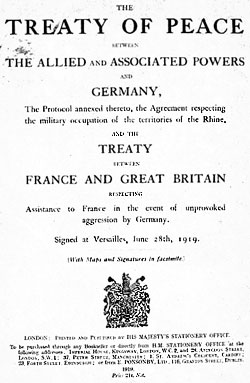Wilson’s Relations with the Germans
Draft Treaty an Abomination.
Disappointment, Depression.
The Seeds of Another War.
Special to The Great War Project
(30 April) The Germans, in the midst of fighting Bolsheviks and imminent starvation, managed to stay in close touch with the peace process in Paris.
So reports historian Thomas Fleming.
“They had even set up a Bureau for Peace Negotiations. The Bureau’s existence testified to the widespread German conviction that Germany had signed a contract with Woodrow Wilson to negotiate peace on the basis of Wilson’s Fourteen Points.”

The Versailles peace conference
“The country put forty bureaucrats to work,” Fleming reports, “on Wilson’s various statements on peace, backed up by more than one hundred experts on agriculture, industry, education, and almost every other conceivable topic that might come up when negotiations with the Allies began.”
“When the Allied note asking Berlin to send representatives to hear the preliminary terms arrived in Berlin, the German foreign minister assumed that the document could be picked up by a messenger. He would dispatch an ambassador, an aide, and four clerks to do the job.”
“Back came a stiff reply from the Allies.” They wanted top individuals – individuals capable of carrying out decisions – plenipotentiaries in the parlance of diplomacy, ready to discuss all aspects of the proposed peace.”
“The foreign minister, a veteran diplomat, was not in the least non-plused. He quickly assembled politicians, soldiers, and top-level bureaucrats, and soon 180 Germans were on their way to Versailles.”
They arrived on April 29th a century ago. Around their hotel was a barbed wire fence patrolled by French sentries.
“For the next week,” reports historian Fleming, “the Germans waited, and waited, and waited. In Paris the drafting committee was still writing the treaty. Meanwhile groups of French patriots showed up at the hotel’s barbed wire fence to scream insults at the Germans.”
On May 5 a century ago, the draft of the treaty went to the printer. More than 200 pages, 440 articles, 75,000 words. Before dawn on May 7th messengers rushed copies to Allied delegations, including to collaborating officials such as Herbert Hoover, in charge of getting food to the starving people of Germany.

The Big Four Allies.
Hoover concluded that Wilson could not make peace on the basis of the Fourteen Point, and he didn’t hold back telling Wilson as much.
“Hoover finished reading the draft treaty at dawn. He could not believe his own disappointment. The thing was an abomination, a parody of the Fourteen Points. The economic clauses aimed at crippling Germany would pull down the whole continent.

The Treaty.
“Unquestionably the terms contained the seeds of another war,” was Hoover’s view.
And in the words of U.S. Secretary of State Robert Lansing, “The terms were immeasurably harsh and humiliating.” And they made a mockery of the League of Nations.
What did it all add up to? Lansing asked. “Disappointment, regret, depression.”
